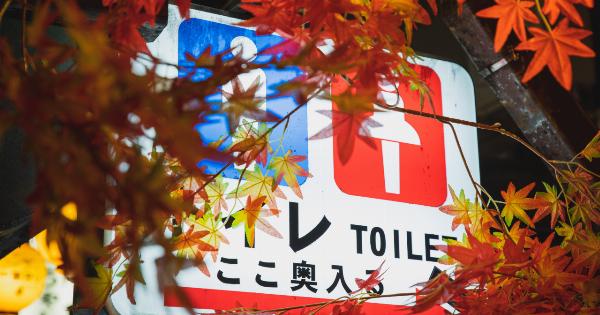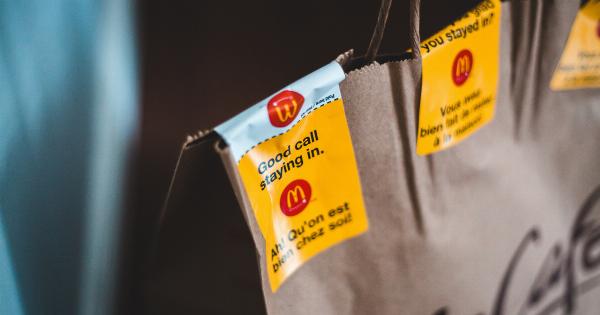Gambling, like any addiction, can be as damaging as drugs or alcohol. Unfortunately, many people who are addicted to gambling often don’t realize it until they’ve hit rock bottom and have no more money or resources left.
However, there are many warning signs to watch out for that can indicate a gambling addiction. If you or someone you know shows any of these signs, it is important to get help before it’s too late.
1. You can’t stop gambling
If you feel like you can’t stop gambling no matter how hard you try, this is a major red flag that you have a problem. Whether you’ve lost everything or won big, the urge to continue gambling can be overwhelming and difficult to resist.
2. You gamble with money you can’t afford to lose
If you are using money meant for bills, groceries, or other necessities to fund your gambling habit, this is a clear sign that things are out of control.
3. You lie to loved ones about your gambling
Many people who struggle with gambling addiction feel ashamed and embarrassed, causing them to lie to their friends and family about their behavior.
4. You’ve tried unsuccessfully to stop gambling
Whether it’s attending support groups, going to therapy, or quitting on your own, if you’ve tried and failed to stop gambling several times, you likely have an addiction.
5. You neglect responsibilities to gamble
If you find yourself skipping work, neglecting household chores, or ignoring other responsibilities in order to gamble, this is a major warning sign that things have spiraled out of control.
6. You feel restless or irritable when you can’t gamble
When you’re addicted to gambling, the urge to place bets can be overwhelming. If you feel antsy or moody when you try to abstain from gambling, this is a sign that you’ve built a dependency on the activity.
7. You borrow or steal money to gamble
Borrowing money from friends and family or taking out loans to fund gambling habits is a sign of an addiction. Similarly, stealing to support a gambling habit is both a criminal offense and a clear indication that the gambling is out of control.
8. You gamble to deal with your emotions
If you use gambling as a way to avoid negative emotions like sadness, anxiety, or stress, you are likely addicted and should seek help.
9. You hide your gambling from others
When people feel ashamed about their gambling, they often keep it a secret from loved ones and friends, further isolating themselves and fueling the addiction.
10. You experience financial trouble because of gambling
If you have financial problems like unpaid bills, mounting debts, or bankruptcy, your gambling is almost certainly contributing to those issues.
11. You’ve lost interest in other hobbies and activities
When an addiction takes hold, other areas of life often fall by the wayside. If you’ve stopped enjoying hobbies you once loved, or have lost interest in spending time with family and friends, your gambling problem may be the root of those changes.
12. You feel guilty or ashamed about your gambling
Gambling addiction can be a source of guilt and shame. If you regularly feel embarrassed or guilty about your behavior, this is a clear sign that you have a problem.
13. You gamble for longer periods of time than you intended to
People with gambling problems often lose track of time and stay in the casino or at the computer for much longer than they originally planned.
14. You chase your losses by gambling even more
When you lose a lot of money gambling, the natural response is often to try to regain those losses by betting more. However, chasing losses in this way can quickly lead to a downward spiral of even deeper debt.
15. You feel like gambling is the only thing that brings you joy
Gambling addiction can be isolating, causing people to turn to the activity as their sole source of pleasure or entertainment. This is a dangerous cycle that can quickly spiral out of control.
16. You prioritize gambling over relationships
If you’re choosing to gamble instead of spending time with friends, family, or romantic partners, this is a sign that your addiction has taken over your life.
17. You keep going back to gambling even if it has caused problems in the past
If you’ve had negative experiences or faced legal or financial problems because of gambling, but continue to pursue the activity, you likely have an addiction.
18. You’ve lost a significant amount of money gambling
If you’ve lost more money than you originally intended, or have lost a huge chunk of your savings, your gambling habits are likely out of control.
19. You’ve borrowed money from multiple sources to fuel your gambling habit
Borrowing money from multiple people, taking out loans, or using credit cards to gamble all indicate addiction and should be taken seriously.
20. You’ve been unsuccessful in cutting back on your gambling
If you’ve tried to reduce the amount of time or money you spend gambling but have been unsuccessful, you likely have a problem.
21. You feel like you need to keep your gambling a secret
If you feel like you need to hide your gambling habits from others, this is a clear sign that you’re ashamed or embarrassed about your behavior.
22. You experience physical symptoms when you can’t gamble
Gambling addiction can cause symptoms like headaches, nausea, restlessness, and anxiety when the individual tries to stop or slow down their habits.
23. You’ve taken illegal actions to fund your gambling habit
If you’ve committed illegal acts like theft or fraud to fund your gambling, this is a major warning sign and you need help immediately.
24. You’ve tried to quit gambling and experienced withdrawal symptoms
Withdrawal symptoms like anxiety, depression, and insomnia are often associated with substance addictions. However, gambling addiction can also cause these symptoms when the individual attempts to quit.
25. You feel like you have to be secretive about how you spend your money
If you’re hiding financial transactions from your spouse, partner, or family members to keep your gambling a secret, you likely have a problem.
26. You’ve put off important tasks or appointments to gamble
If you’re putting off important tasks like attending doctor appointments or filing taxes, or you’ve missed important deadlines, to spend more time gambling, this is a sign that your addiction has taken over your life.
27. You feel like you can’t stop even if you want to
The inability to control gambling habits, even if the individual wants to stop, is a major warning sign of addiction.
28. You’ve experienced relationship problems because of gambling
When gambling takes precedence over relationships, it can endanger those connections. If you’ve had strained relationships with loved ones because of gambling, this is a sign that you need help.
29. You’ve experienced legal trouble because of gambling
If gambling has landed you in legal hot water, it’s clear that your problem has gone too far. Many individuals facing legal issues as a result of their gambling addiction find that seeking treatment can help their legal proceedings.
30. You need to gamble with increasing amounts of money to feel the same excitement
Like any addiction, over time the same level of stimulation loses its thrill, leading people to increase the amount of money they bet to get the same emotional response.
If you find that you need to bet more and more to get the same high, this is a sign that you have a gambling addiction.
Conclusion
Gambling addiction is a serious issue that affects many people. The signs of a gambling addiction can be difficult to recognize, but it’s important to understand them and seek help before the addiction spirals out of control.
If you or someone you know has a gambling problem, seek professional help to overcome it.
























